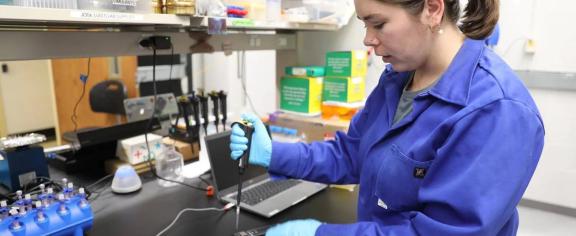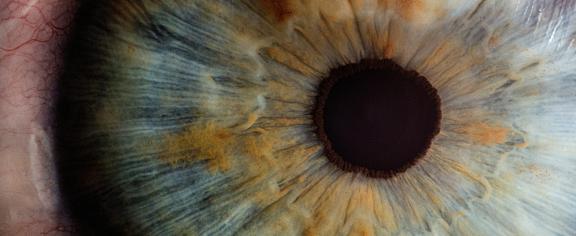2024-03-25
The grant will support innovative research on lipid-based immunotherapies, which could help develop the next generation of universal immunotherapies.
2024-03-19
Georgia Tech researchers are teaming up with NASA to study bacteria on the International Space Station to help define how scientists and healthcare professionals combat antibiotic-resistant bacteria for long-duration space missions.
2024-03-11
Researchers at Georgia Tech and University of Helsinki have discovered a mechanism steering the evolution of multicellular life. They identified how altered protein folding drives multicellular evolution.
2024-03-07
Co-PI Simon Sponberg will lead the Georgia Tech contingent of researchers, which aims to understand dynamic, agile movement.
2024-02-20
Georgia Tech chemists are exploring the behavior of a complex protein associated with glaucoma — characterizing one of the largest amyloid-forming proteins to date.
2021-08-05
CMDI merges disciplines, aggressively recruiting microbiologist ‘superstars’ to take back the high ground from antibiotic-resistant pathogens and emerging diseases — and to harness microbes for new medicines, cleaner environments, and climate solutions.
2024-02-09
Since the early days of the Institute, Georgia Tech students have explored aspects of the mind, brain, and behavior through psychology. To commemorate 100 years of psychology at Georgia Tech, we’re taking a deep dive into its storied history.
2024-01-29
The Georgia Tech Integrated Cancer Research Center has combined machine learning with information on blood metabolites to develop a new early diagnostic test that detects ovarian cancer with 93 percent accuracy.
2024-01-12
Georgia Tech researchers have engineered one of the world’s first yeast cells able to harness energy from light, expanding our understanding of the evolution of this trait — and paving the way for advancements in biofuel production and cellular aging.
2023-12-20
BME researcher's immunometabolism approach pioneers single cell spatial metabolomics




